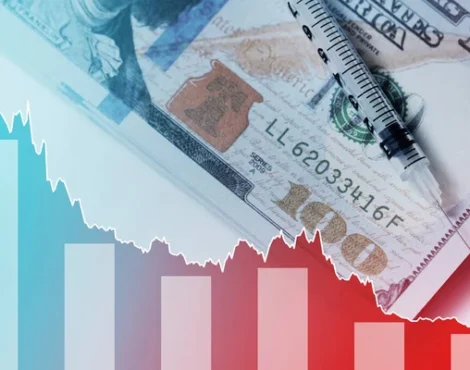In recent years, blockchain technology has emerged as a game-changer in various industries, including trading. The decentralized and transparent nature of blockchain has revolutionized the way assets are bought and sold, eliminating the need for intermediaries and providing a secure and efficient platform for trading.
Blockchain Technology Revolutionizing Trading Markets

Blockchain technology is revolutionizing trading markets by providing a decentralized and secure platform for buying and selling assets. This technology allows for peer-to-peer transactions without the need for intermediaries, reducing costs and increasing efficiency in trading. With blockchain, transactions are recorded on a tamper-proof ledger, ensuring transparency and trust in the trading process.
Advantages of Using Blockchain in Trading
- Reduced Costs: Blockchain technology eliminates the need for intermediaries in trading, leading to lower transaction fees.
- Increased Efficiency: Transactions are processed in real-time on the blockchain, reducing settlement times and improving trading efficiency.
- Improved Security: The decentralized nature of blockchain ensures that transactions are secure and resistant to fraud.
How Blockchain Ensures Transparency in Trading
Blockchain technology ensures transparency in trading by recording all transactions on a public ledger that is accessible to all parties involved. This ledger cannot be altered once a transaction is recorded, providing an immutable record of trading activity. This transparency builds trust among traders and investors, facilitating a more efficient and trustworthy trading environment.
The Future of Trading: Blockchain Technology

The future of trading is undoubtedly intertwined with blockchain technology. As more market participants embrace blockchain for trading, we can expect to see increased efficiency, transparency, and security in trading markets. With blockchain, the trading process will become more streamlined, reducing costs and friction in transactions.
Key Players Integrating Blockchain into Trading
- Digital Asset Holdings: Digital Asset Holdings is a leading blockchain company that provides solutions for trading and settlement in financial markets.
- R3: R3 is a consortium of banks and financial institutions that is developing blockchain solutions for trading and settlement.
- Nasdaq: Nasdaq has been exploring blockchain technology for trading and recently launched a blockchain-powered platform for private market trading.
Challenges and Opportunities for Blockchain Trading

While blockchain technology offers numerous benefits for trading, there are also challenges to be addressed. Some of the key challenges include regulatory hurdles, scalability issues, and interoperability among different blockchain platforms. However, these challenges also present opportunities for innovation and collaboration in the growing field of blockchain trading.
| Comparison Table: | Advantages | Challenges |
|---|---|---|
| Reduced costs | Regulatory hurdles | |
| Increased efficiency | Scalability issues | |
| Improved security | Interoperability challenges |
In conclusion, blockchain technology is revolutionizing trading markets by providing a secure, transparent, and efficient platform for buying and selling assets. As more market participants adopt blockchain for trading, we can expect to see increased innovation and collaboration in the industry. While there are challenges to overcome, the opportunities for blockchain trading are vast, and the future looks bright for this transformative technology.
Advantages of Using Blockchain in Trading

- Increased Security: Blockchain technology uses cryptographic algorithms to secure transactions, making it nearly impossible to alter or tamper with data. This enhances the security of trading platforms and reduces the risk of fraud.
- Cost-Effective: By eliminating intermediaries, blockchain reduces transaction fees and overhead costs associated with traditional trading systems. This makes trading more accessible and affordable for a wider range of investors.
- Efficiency: Blockchain technology enables near-instantaneous settlement of trades, reducing the time it takes to complete transactions. This improves liquidity and allows traders to react quickly to market changes.
How Blockchain Ensures Transparency in Trading

- Immutable Ledger: Every transaction recorded on a blockchain is transparent and immutable, meaning it cannot be altered or deleted. This ensures that all trading activities are traceable and verifiable, promoting trust among traders.
- Smart Contracts: Blockchain allows for the creation of smart contracts, which are self-executing agreements with predefined rules. These contracts automatically execute trades when certain conditions are met, eliminating the need for intermediaries and reducing the risk of disputes.
- Decentralized Verification: The decentralized nature of blockchain means that transactions are verified by a network of nodes, rather than a single central authority. This consensus mechanism further enhances transparency and reduces the risk of manipulation.
Key Players Integrating Blockchain into Trading

- Nasdaq: Nasdaq has been at the forefront of integrating blockchain technology into its trading platforms. The stock exchange uses blockchain for managing shareholder voting, issuing securities, and ensuring regulatory compliance.
- IBM: IBM has developed a blockchain platform called IBM Blockchain, which enables businesses to create their own blockchain networks for trading and supply chain management. The platform is designed to be secure, scalable, and interoperable with other systems.
- Binance: Binance is one of the largest cryptocurrency exchanges in the world, known for its innovative use of blockchain technology. The exchange uses blockchain for secure and efficient trading, as well as for launching new blockchain projects through its Binance Launchpad platform.



